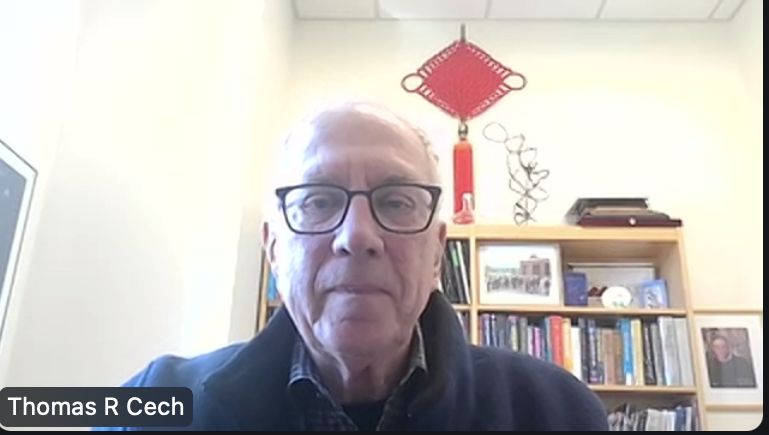
‘I knew I wanted to be a scientist’: Nobel Prize winner Thomas Cech and DNA
Science is a broad term that covers hundreds of fields and interests, but all things that are deemed science have one common goal: to understand and explain the natural world. One of the biggest voices in science today is Thomas Cech. He is widely recognized for his groundbreaking discovery of the catalytic properties of RNA (Ribonucleic Acid), which led him to win a Nobel Prize in chemistry, but that is not the only field he has influenced. Today, he is regarded as a biologist as much as he is a chemist. This shows just how much of the scientific community Dr. Cech has reached, but that isn’t where he started.
Born in 1947 in Chicago, Illinois, and raised in Iowa City, Thomas (Tom) Cech developed a love for science from a young age.
“When I was in middle school, I knew I wanted to be a scientist, but I was interested mostly in rocks, minerals, and fossils, so I was an avid rock collector,” Dr. Cech said.
In 1966, Dr. Cech started his studies at Grinnell College, majoring in chemistry due to his strong interest in the subject. After finishing his degree, he pursued a PhD at the University of California, Berkeley with John Hearst as his advisor. Once he completed his PhD and postdoctoral work at MIT, he took a position at the University of Colorado Boulder, where he began to shift his focus toward biology. However, at the time, he was not focusing on RNA, the topic that would eventually win him the Nobel Prize.
“I had always been interested more in DNA (Deoxyribonucleic Acid), the double helix, because it is the master copy of all of the information that tells a cell how to grow, how to work, how to divide, and how to differentiate into different cells such as liver cells, skin cells, brain cells, and heart cells,” Dr. Cech said. “Because of this, I thought DNA was the only thing that was really important, and RNA was more of a minor player.”
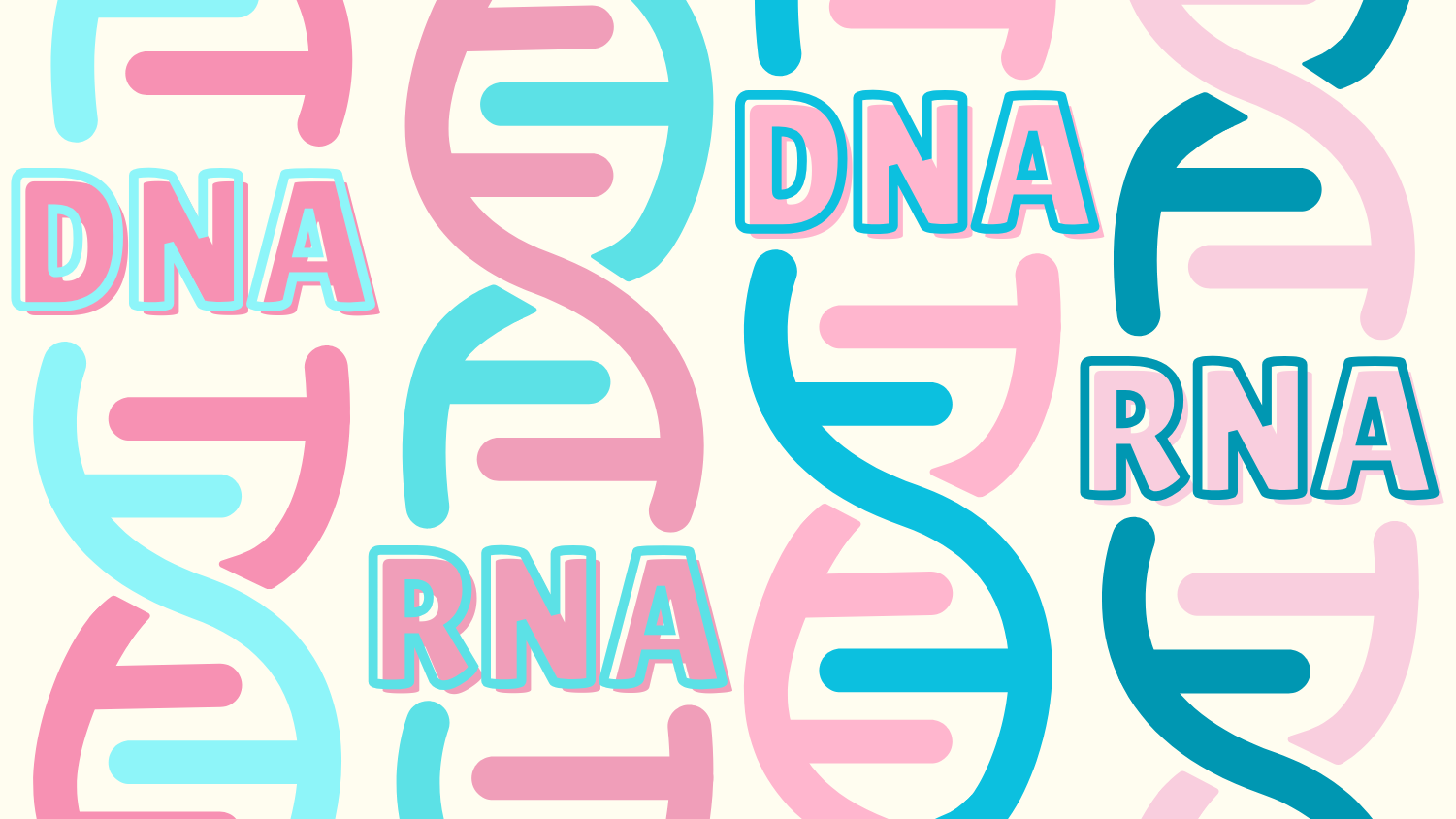
At this point, it might be somewhat confusing not knowing what RNA and DNA are. Broken down simply put, DNA is where all of your genetic information is stored. It is a special molecule that carries out instructions for how living things grow, develop, and function. DNA determines the traits you have, like the color of your eyes ot the color of your skin. Imagine yourself as a complex computer program: DNA is the “code” that makes you, you.
But DNA itself cannot carry out the instructions and take them into action. Instead, RNA helps make proteins that form who we are from the instructions that the DNA has.
Using the computer analogy again, imagine you have written the code perfectly, and now you want your computer to run that code. RNA acts like the interpreter, taking the genetic code from DNA and converting it into a functioning program.
In our bodies, this means that DNA stores all of your “code,” while RNA translates this code into proteins, which are then used for building and maintaining everything in your body, from your heart and brain to your arms and all the other parts of your body. Again, this is an extremely simplified version, and if you are curious, you should follow up using the resources around you.
“RNA is essential for life — It is in every food that we eat and every animal that we see, and so it is, of course, very important,” Dr. Cech said when asked how RNA affects the general public. “But in terms of direct effect, I think the biggest thing that we saw the most recently was the messenger RNA vaccines against COVID-19 and the SARS-CoV-2 viruses. The vaccine had a very big impact on getting society rolling again after the pandemic.”
As Dr. Cech stated, he was originally more curious about DNA, but thankfully, he eventually found an incentive to start investigating RNA.
“A separate group of scientists found that RNAs often cut and rearrange DNA sequences (the ‘codes’) after they were first produced, this process is called RNA splicing,” Dr. Cech said. “People knew RNA splicing was essential for RNAs to remove interruptions in the DNA code, but they didn’t know the mechanism by which RNA splicing occurred, so we thought we were just studying DNA and we weren’t interested in RNA, but one of the things we did was look at the RNA that was produced by the gene that we were studying, and much to our surprise, it underwent the cutting and pasting reaction called RNA splicing.”
This was a huge discovery because the splicing was happening outside of the organism in a test tube with no other factors to start it.
“Getting a biochemical reaction to work in the test tube is often the first step in finding how that reaction works. Our curiosity then led us to change our priorities away from DNA and more towards the RNA made from the DNA,” Dr. Cech said.
This led him to further research into RNA, eventually, he discovered a completely new concept in the world of RNA.
“We found that sometimes RNA, a form of genetic material, could act as an enzyme, that was a surprise, and we did not expect to find it,” Dr. Cech said. “We sort of stumbled upon it, there was a lot of chance involved in the research.”
This led Dr. Cech to discover that RNA splicing was not being catalyzed by a protein but instead was cutting and pasting itself, or in other words, RNA was being a catalyst for its own splicing (a catalyst is something that causes something else to happen, so RNA was being a catalyst for its own splicing which means that it was causing its own splicing).
This was a huge discovery because it was previously believed that all catalysts for DNA splicing were protein enzymes, this discovery proved that this was wrong by showing that RNA could begin the splicing process with no proteins available (it is still true that most catalysts are proteins but now we know that it is not always the case).
This discovery led Dr. Cech to win the Nobel Prize; the awards ceremony was held on Dec. 10, 1989 in Stockholm, Sweden.
“I brought along many family members, but also two of the people from my laboratory who had done a lot of the work that led to the Nobel Prize, and they came with their families as well,” Dr. Cech said.
After winning the Nobel Prize, Dr. Cech wrote a book called “Catalyst” about his discovery in RNA. He initially intended for the book to help the public understand science better.
“I realized during the pandemic that many scientists, including myself, had done a terrible job of engaging the non-scientist public with what we were doing,” Dr. Cech said. “This led to a misunderstanding about how science works; it led to a fear of science and, more specifically, a lot of anti-vaccine sentiment.”
People did not understand what vaccines were, how they were produced, and how they were held to a very high standard of safety, so I wrote the book about RNA, I tried to avoid scientific terminology, and I tried to use simple everyday analogies to talk about ribonucleic acids (RNA) and the fantastic things it does in biology.”
Unfortunately, his book did not make as big of a difference as he had hoped.
“I hoped that my book would also help, but most of the feedback I get is from other scientists,” Dr. Cech said. “Hopefully, it made some impact on the general public, but not as much as I had hoped.”
Dr. Cech regularly rotated his field of science, from his early love of geology to his deep interest in chemistry and eventually to his groundbreaking discovery in biochemistry, but one thing that never wavered was his love for science.
“I would give you the advice that if you are interested in science make sure to find the kind of science that excites you, that you have a passion for it and if you find that you are doing some kind of science and you are not passionate about it then don’t give up your interest in science,” Dr. Cech said.
He describes finding the field that inspires you is the most tumultuous journey.
“Different fields of science each have their own styles, their own tempo, their own excitements, but also their own frustrations,” Dr. Cech said. “So it is important to hunt around a bit until you find the kind of science that rings true to you, that makes you personally excited, it may not be the first thing you try, it may not be the second thing you try, but keep at it and you will find some kind of science that is right for you.”




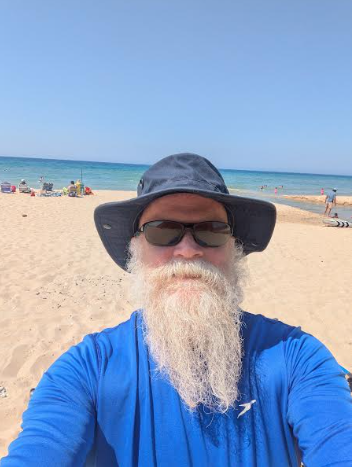
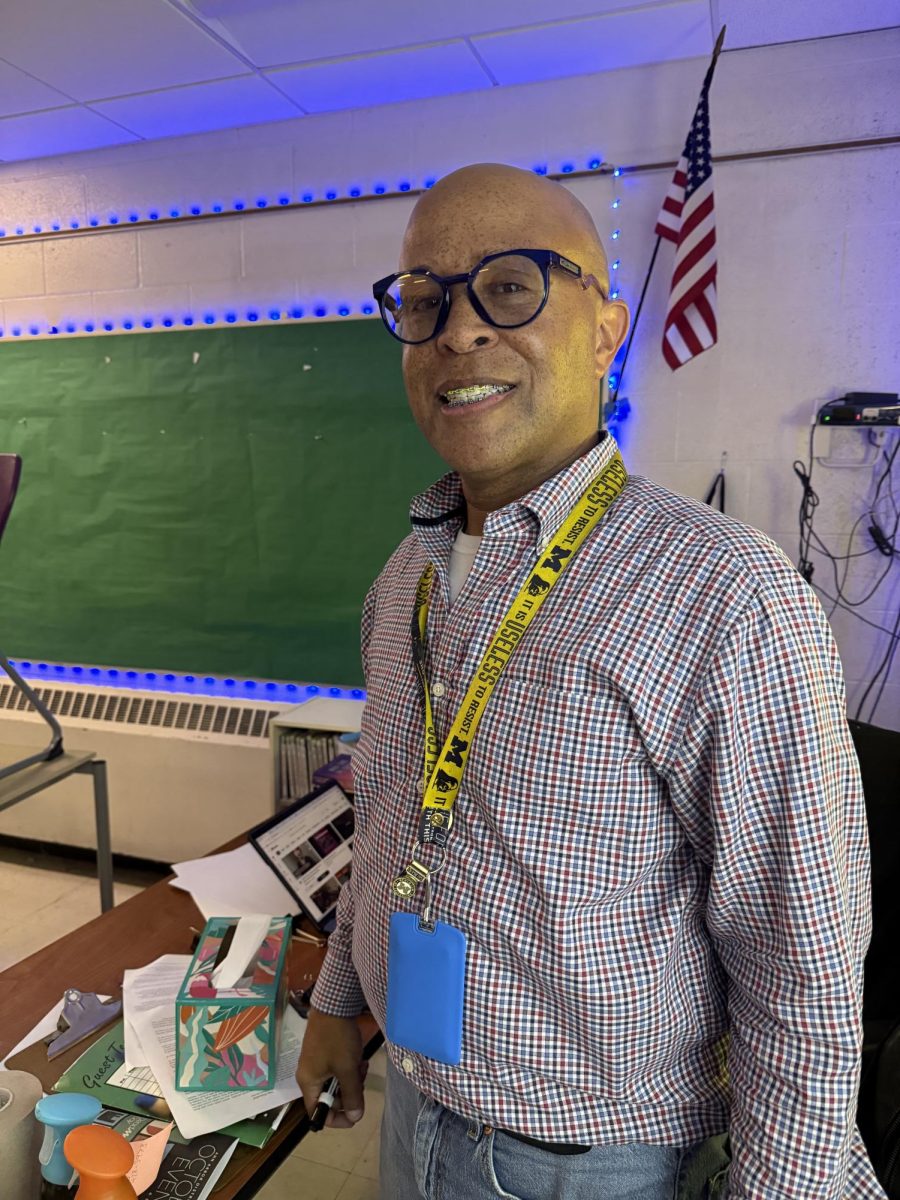
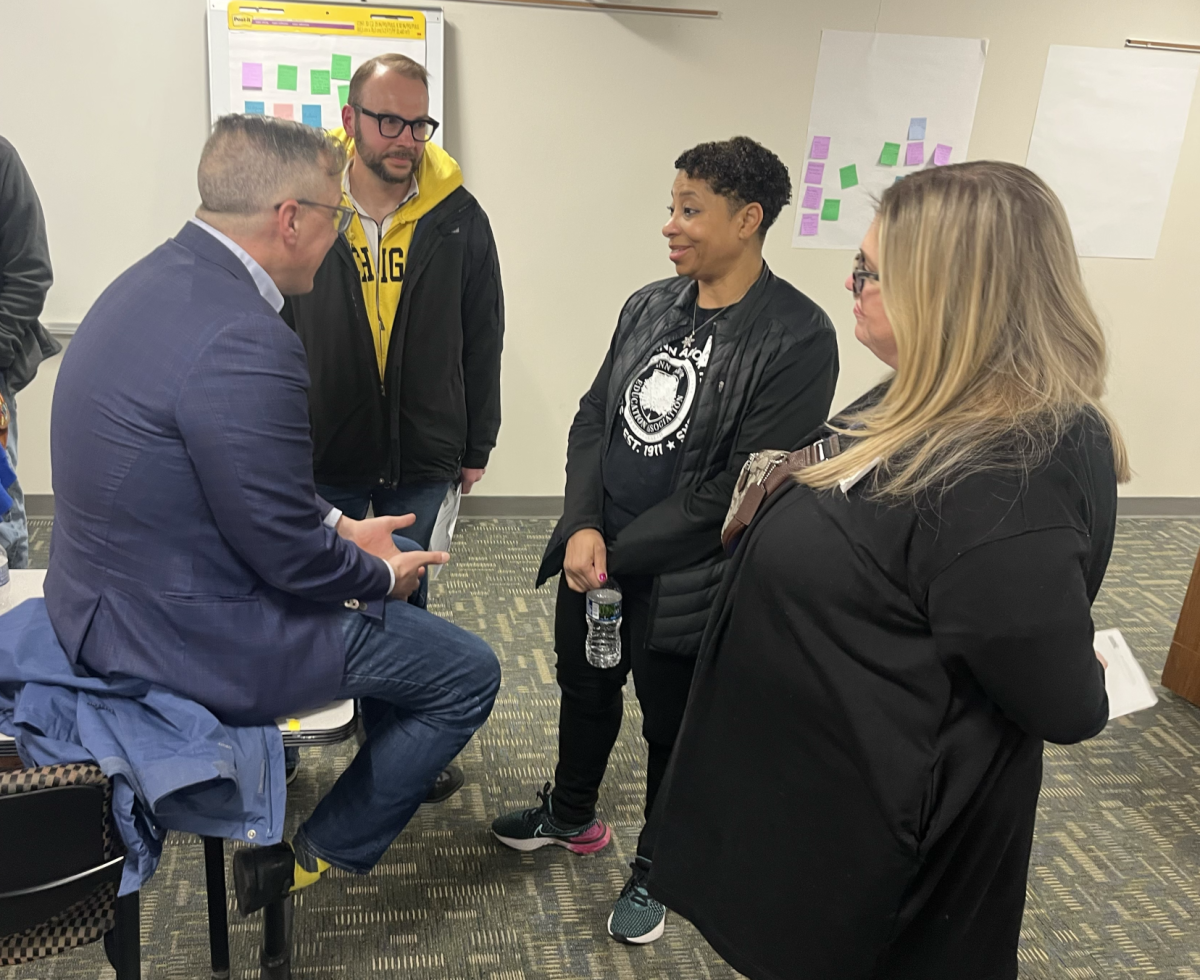
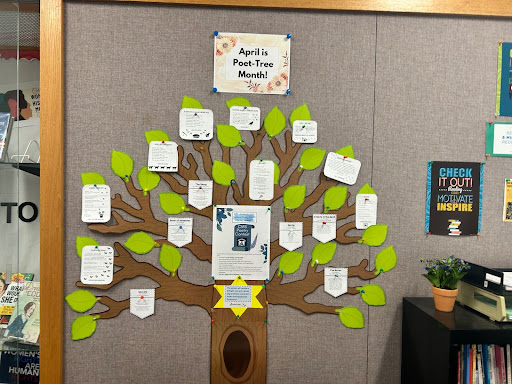
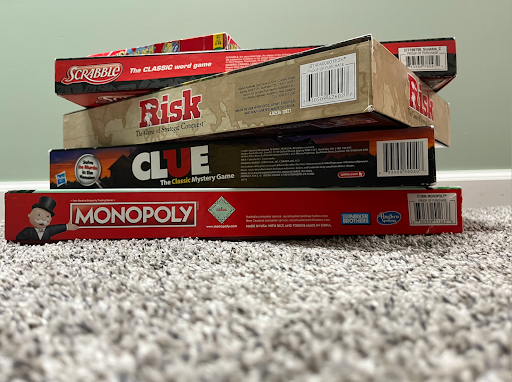
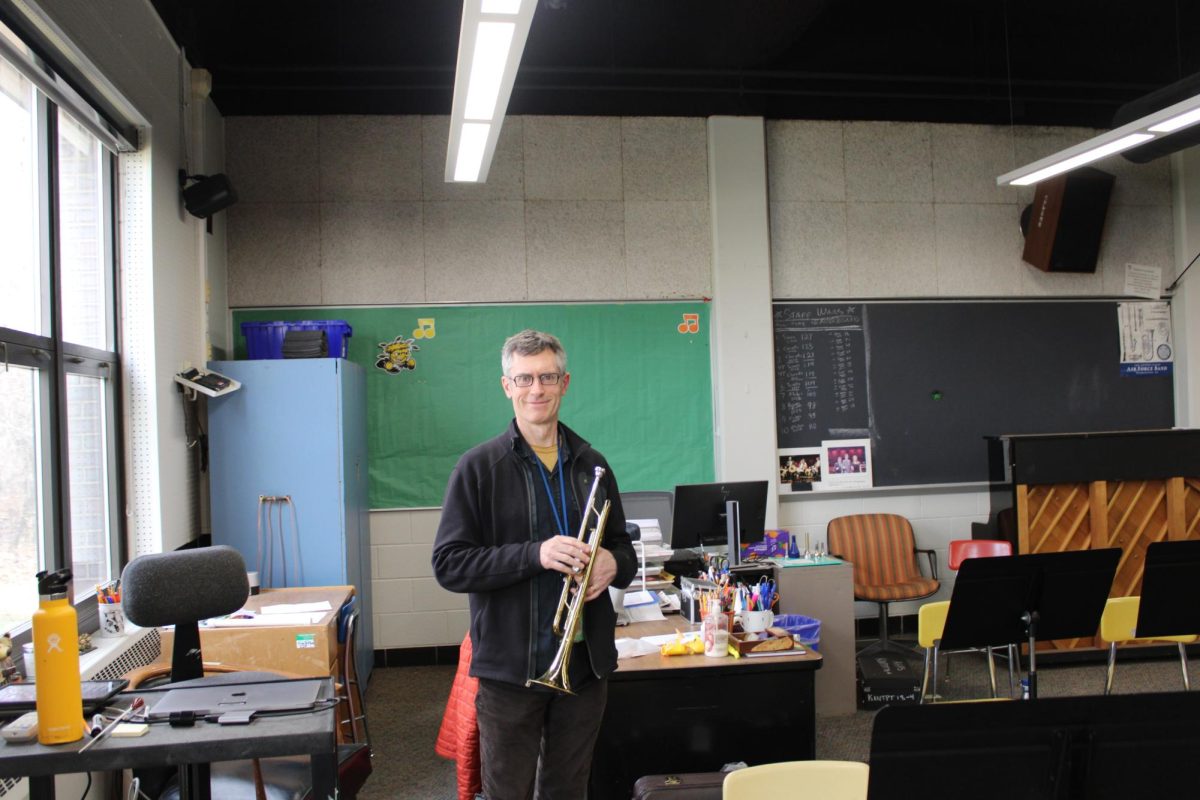
anonomys • Apr 14, 2025 at 2:18 pm
slayy